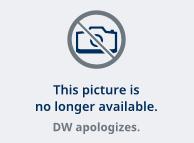TURKEY | 17.09.2011
Turkey's president seeks to forge European ties on Germany visit
Turkish President Abdullah Gül is to arrive in Berlin on Sunday, September 18, where he will be received by his German counterpart, President Christian Wulff. During his four-day visit, he is scheduled to deliver an address at Berlin's Humboldt University and also to hold talks with German Chancellor Angela Merkel.
Ahead of the visit, Gül said Turkey was committed to pursuing membership in the European Union, despite opposition from some quarters in Germany and elsewhere on the continent.
Deutsche Welle spoke to Islam expert Guido Steinbach about the issues bedeviling German-Turkish ties.
Deutsche Welle: President Gül will be spending four days in Germany, a relatively long time for a state visit. Is this an attempt at convergence between the two countries?
Udo Steinbach: Yes, certainly, for Germany and Turkey have several issues to discuss. President Gül already hinted at one of the main topics with his earlier statements that Turks living in Germany should speak perfect German without an accent. In other words, the issue of Turkish migrants in Germany will be a main topic.
The other main issue will be how the two countries see the developments in northern Africa and the Middle East. For Turkey it is clear: without Europe, it is limited in what it can achieve. Europe, too, is aware that Turkey can be a strategic partner in this rapidly changing climate. The two countries must find a mutual strategy in northern Africa and the Middle East.
But haven't relations between Turkey and Europe cooled? Ankara's EU accession negotiations are stalled, and German Chancellor Angela Merkel increasingly speaks of a mere "privileged partnership" between the two.
Yes, and Turkey has reason enough to be frustrated over the way its bid for EU accession has been handled. But the fact that Mr. Gül has set aside four days for his trip to Germany should provide enough time to discuss this point - how can Turkish-European relations be reshaped in the light of new facts that have arisen in the past months. And also in light of the fact that Turkey and the European Union have more mutual interests in the Mediterranean and in the Middle East than ever before. We can no longer afford the indifference that has crept in between the two sides.
What future role does President Gül see his country playing in Europe?
Mr. Gül is perhaps the last real convinced "European" among Turkey's politicians. When it comes to Prime Minister Erdogan, I certainly have my reservations, but Mr. Gül is without a doubt pro-Europe. He has said time and time again that Turkey needs Europe's support. Above all, perhaps, Gül seeks EU recognition that Turkey's role in the Middle East is legitimate. Turkey is still waiting for this recognition, and this explains the often erratic way in which Erdogan and his foreign minister have acted in the Middle East.
You say at the same time that Europe also needs to move towards Turkey: What areas in particular?
There is currently a dominant scepticism that Turkey will ever become a member of the European Union. I believe this is a fundamental paradox. For the first time in the history of the EU, we are negotiating with a state over its membership to the union. This state, as with all those involved in the process of EU accession negotiations, must give up a whole lot and also transform itself significantly. And Europe, in the end, says: No, there is no membership for you. We have never seen this happen in such negotiations; it is unprecedented in the case of Turkey. And we must, I believe, vacate this fruitless position.
Do you think Merkel could convince her conservative party of this?
The chairman of the Bundestag's Foreign Affairs Committee, Ruprecht Polenz, who is a key figure in Merkel's Christian Democratic Union (CDU), has written a book about how important it is for Turkey to join the EU. There are many voices in Merkel's CDU that recognize Turkey's importance for Europe. Maybe these voices, together with President Gül, will be able to persuade Merkel to abandon her very formalistic positions on Turkey.
Should the concept of Turkey's "privileged partnership" be dropped?
Yes, that has to go. It works against the entire process. The Turks have made no secret about their frustration. And this is exactly the point: If, at the end of Mr. Gül's visit, we manage to forget this "privileged partnership," then we will have successfully begun a new chapter and taken an important step into a new common future.
Friederika Schulz interviewed Udo Steinbach (glb)
Editor: Sonia Phalnikar
Editor: Sonia Phalnikar
dw



No comments:
Post a Comment